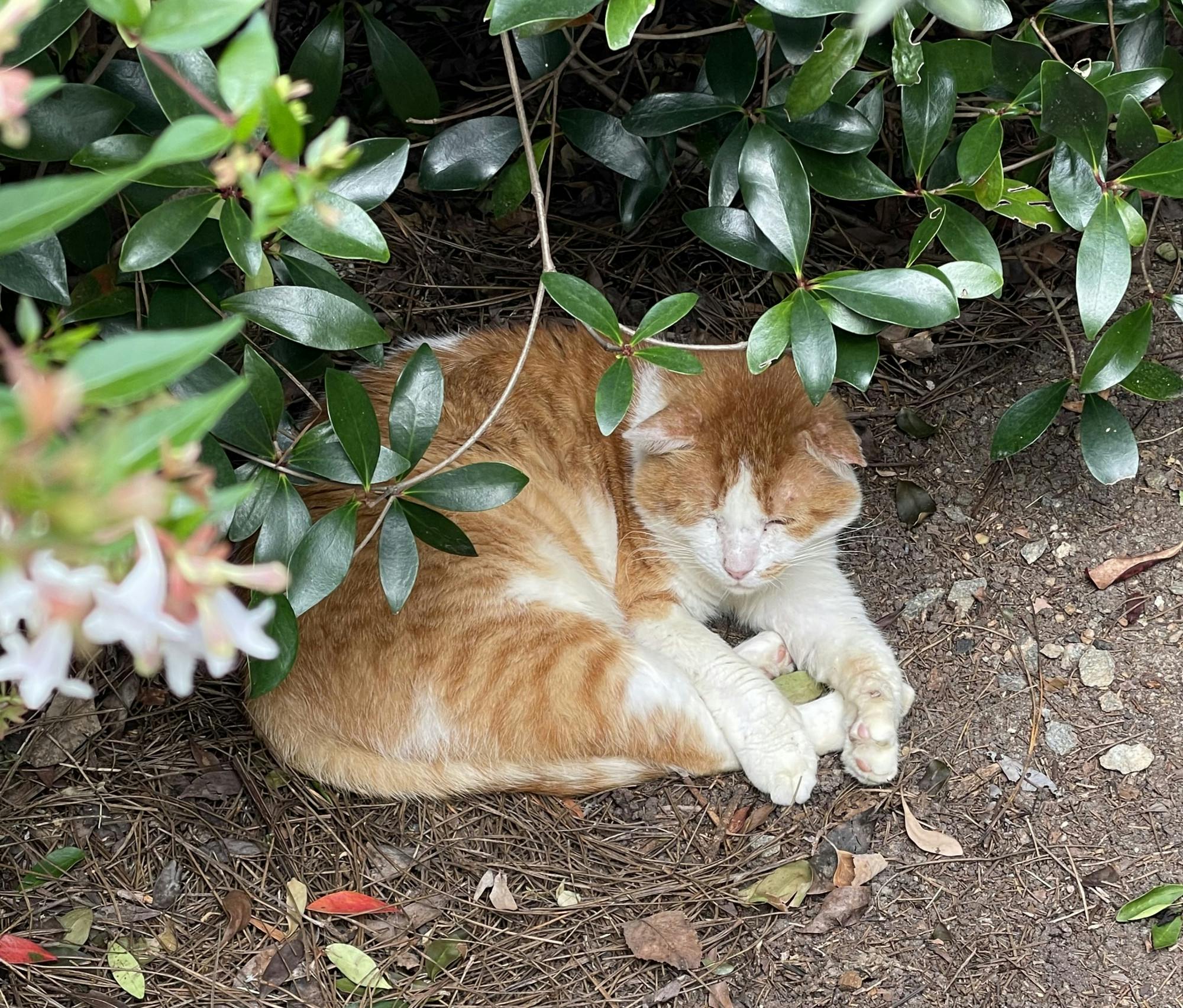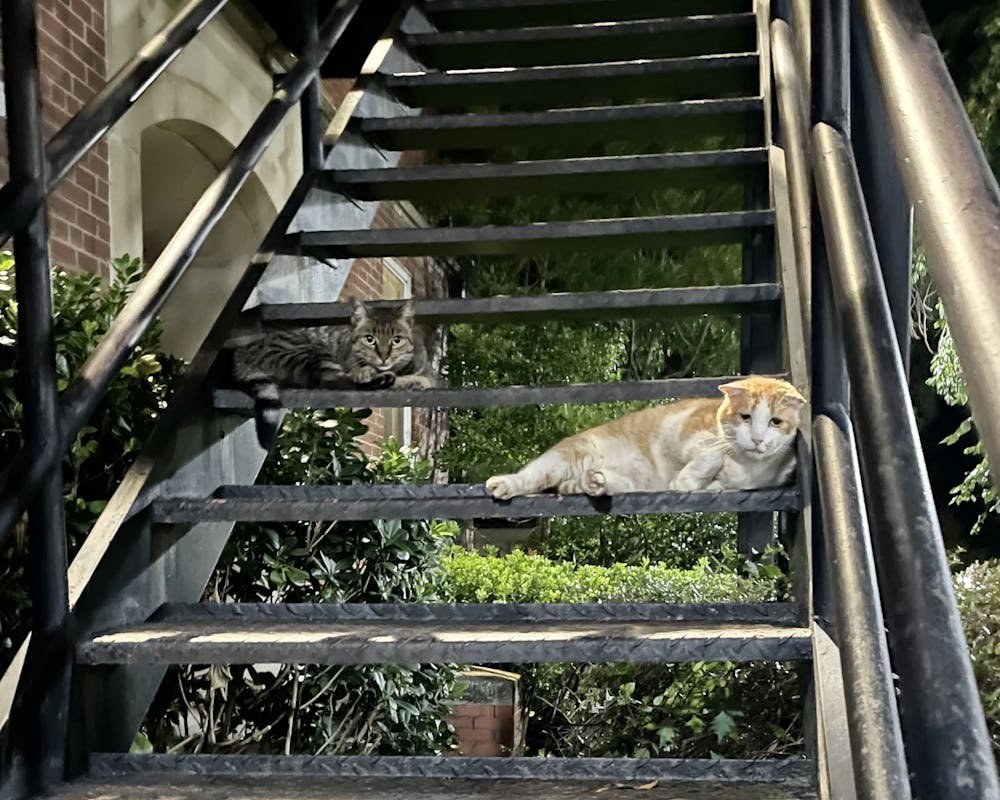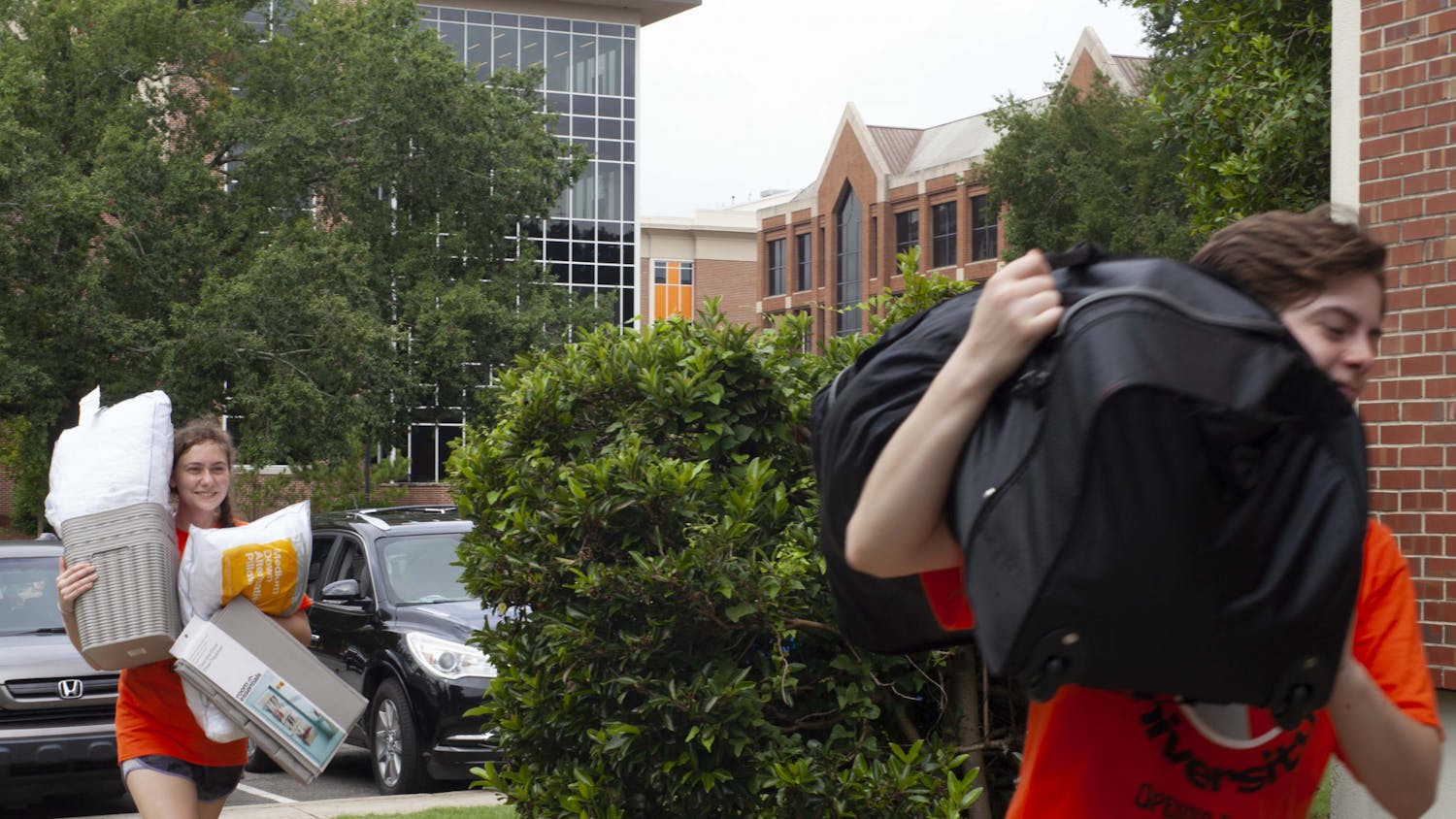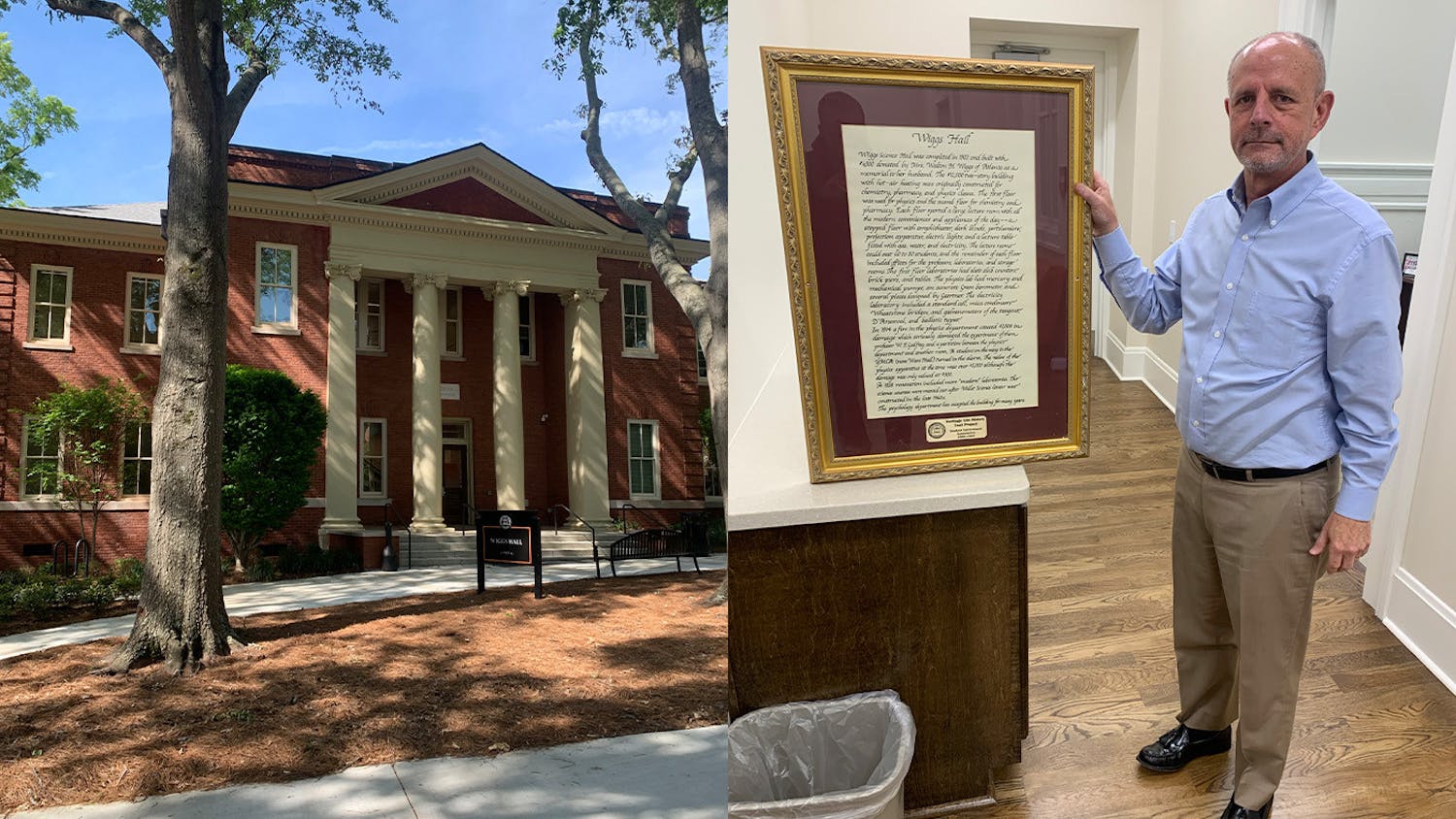
Most returning students at Mercer have seen the feral cats on our Macon campus. However, new and returning students may not know how to interact with them safely. Here are some of the dos and dont's of engaging with Mercer’s feral cats — and feral cats in general.
Do: Learn their names
While some of the cats on campus are transient, we have many that are easily recognizable and have resided on campus for many years.
One of the most recognizable cats is Tommy, the orange and white cat. He has been living on campus for numerous years and can often be seen laying in the shade with his adorable wife Sally, a grey tabby. Currently, we also have two other cats named Butters and Spooky. Spooky is an all-black cat and is usually seen in the same vicinity as Butters.
Don’t: Touch or feed the cats
Mercer has a policy prohibiting students and visitors from touching or feeding the wildlife on campus. This policy includes squirrels, rabbits, birds and feral cats.
Grace Dennis ‘24, public health major and president of the Mercer C.A.T.s, said that she started her club in an attempt to gain permission from the school to properly trap the cats so she can take them to the vet to receive vaccinations, get any additional medical help and be spayed or neutered.
However, other students do not have permission from the school to touch or feed them, and Dennis advises students not to.
“I do discourage people from petting them a lot of the time, the cats feel harassed sometimes," Dennis said.
If students wish to observe the cats from a safe distance, Dennis supports their decision to do so. Mercer C.A.T.s also handles the routine feedings of the cats, although they have not yet received permission from the University to do so.
Do: Volunteer at Kitty City
Mercer C.A.T.s is partnered with Kitty City Cat Rescue, a cage-free and no-kill cat shelter in Macon. They rescue cats from high-kill shelters and provide them with a comfortable, home-like environment until they are adopted.
Dennis works as the Mercer liaison and is tasked with coordinating days where volunteer groups can go in.
“We also always just appreciate volunteers coming in," Dennis said. "It’s hard work, a lot of cleaning, not as much cat petting, but you do get to know all the cats there."
She encourages students to get involved with Kitty City if they are wanting to help the cats in Macon.

Tommy lies with a black cat, Mama, near Roberts Hall. Mama is no longer residing on campus after she was removed from campus. (Photo provided by Maddie Malcom)
“Right now, they’re actually struggling for volunteers, especially with all the people who volunteered over the summer not coming back in (and) seniors that were coming in last year not coming back," Dennis said.
Don’t: Kidnap the cats!
Most of the cats on campus are feral, meaning they were born and raised in the wild. When students in the past have attempted to keep them in their houses, the cats often return to their homes outside.
“We've had a lot of incidents where people have tried to take cats in weird ways," Dennis said. "Just stick it into, like, a laundry basket and take the cat."
She advises students “not take them into their dorm, especially when they're not allowed."
"It is very obvious when a student has a cat in their dorm, especially if they're checked," she said. "They will be fined accordingly.”
Mercer's feral cats are happy and well taken care of, so it is important to respect their boundaries. To get involved with Kitty City, visit their website's volunteer page.





